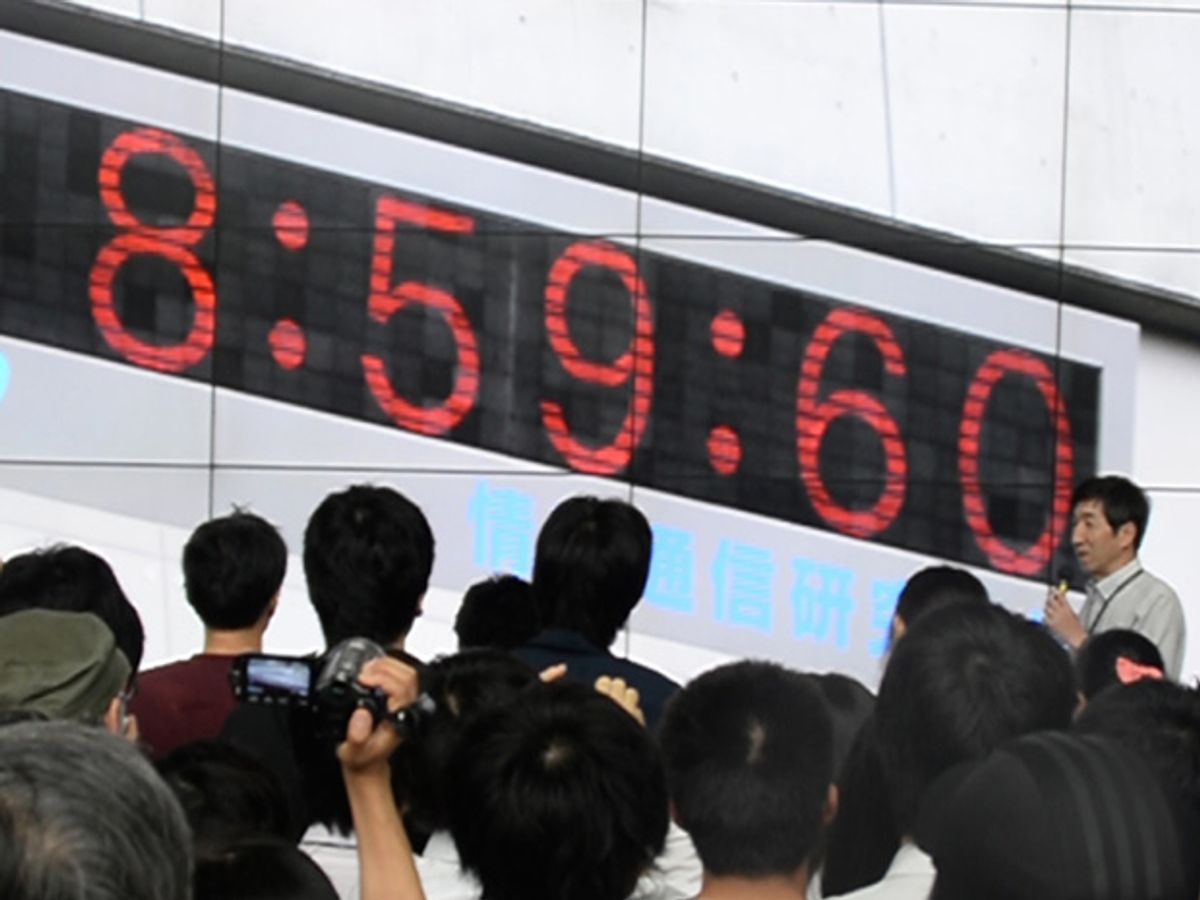After I posted a curtain-raiser about the debate over the fate of the leap second at the World Radiocommunication Conference in Geneva last month, I settled in for a wait.
The leap second, if you haven’t come across it before, is the stray second that is added intermittently to atomic-clock–based Coordinated Universal Time (UTC) to keep it in sync with the unsteady rotation of the Earth.
The question of whether to keep or drop the leap second from UTC has a long and contentious history, and several people I interviewed said they expected negotiations to last through most of the four-week-long meeting.
Instead, “everything was really settled at the end of the second week,” says Vincent Meens of France’s National Center for Space Studies. And the decision was to delay the decision: the question was placed on hold until the 2023 World Radiocommunication Conference, which will be the meeting after the next WRC meeting.
That might sound like kicking the proverbial can down the road—and especially bad news for those who think that adding leap seconds threatens modern networks and systems. But the eight-year delay might not be as bad as it sounds. If the leap second were dropped this year, there would likely have been a grace period to allow systems to adjust to the new order; the proposal submitted this year by the Inter-American Telecommunication Commission, for example, would have waited until 2022 to make the change to UTC active.
Meens expects that if a decision is made to eliminate the leap second in 2023, it would be accompanied by swift action. “The idea is not to wait. So if it’s decided [to eliminate the leap second] it should be right when the new radio regulation is put into force. The new time scale would be in the beginning of 2024,” Meens says. So what looks like an eight-year delay right now might only wind up being a couple of years.
Of course, that outcome will likely depend on what’s done in the meantime (i.e. a good amount of consensus-building and leg work). There is a long list of organizations (see paragraph five in that link) that are expected to take part in studies leading up to WRC-23. And in the midst of all that, Nature’s Elizabeth Gibney reports, responsibility for the definition of UTC will be shifting away from the International Telecommunication Union and toward the international body that already manages International Atomic Time as well as the SI units of measure. She says the change in responsibility is unlikely to accelerate the decision.
In fact, says Brian Patten of the U.S. National Telecommunications and Information Administration, the International Telecommunication Union can’t make the change by itself. “The ITU cannot alone make a decision about leap seconds,” he says, as the organization is responsible for distributing the time scale not making it. As for a speedy resolution in 2023, Patten says it’s too early to call: “we will have to see what happens in the joint work and discussions,” he says. “We can’t speculate on what the outcome will be when a report is delivered to WRC-23 on the status of the work.”
Although Meens predicts swift implementation if the leap second is eliminated, he can’t predict which way the decision will go. He’s had a role for years in international deliberations over the leap second, but even he was surprised by the outcome of this meeting. “I thought this was going to go until the end of the conference,” Meens says. “This was a particular subject where it was hard to find gray between white and black.”
He theorizes the decision to delay might have come about in part because the international participants of the WRC wanted to focus on other difficult subjects—in particular, the allocation of radio-frequency bands for mobile devices. It’s hard to imagine we won’t be demanding even more spectrum in eight years time. But perhaps it will be less of a distraction the next time around.
The Final Acts (pdf) of the conference are now available (the UTC decision is in RESOLUTION COM5/1).
Rachel Courtland, an unabashed astronomy aficionado, is a former senior associate editor at Spectrum. She now works in the editorial department at Nature. At Spectrum, she wrote about a variety of engineering efforts, including the quest for energy-producing fusion at the National Ignition Facility and the hunt for dark matter using an ultraquiet radio receiver. In 2014, she received a Neal Award for her feature on shrinking transistors and how the semiconductor industry talks about the challenge.



